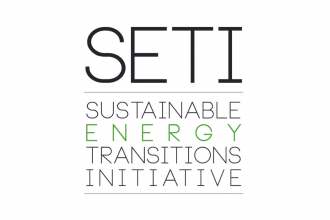
Call for Papers: SETI 2024 Annual Workshop
Call for Papers! SETI 2024 Annual Meeting Deadline: April 21, 2024, 23:59 ET USA. We are pleased to announce that the Ninth Annual Workshop of the Sustainable Energy Transitions Initiative (SETI) will…

Call for Papers! SETI 2024 Annual Meeting Deadline: April 21, 2024, 23:59 ET USA. We are pleased to announce that the Ninth Annual Workshop of the Sustainable Energy Transitions Initiative (SETI) will…
Since December 2019 when COVID-19 was detected, it took the world by surprise in terms of spread and morbidity/mortality. The high rate of spread and casualties recorded from COVID-19 called for research in all directions to find ways to contain and reverse the incidences. It is against this background that this paper sought to measure the association of the socio-demographic factors in the hard-hit districts in Greater Accra and Ashanti to analyze its relationship with the novel COVID-19 virus.
Global Health Security borders on prevention, detection and response to public health threats like the novel coronavirus disease 2019 (COVID-19). Global Health Security Index (GHSI) of 2019 and 2021 revealed the world remains ill-prepared to deal with future pandemics, evident in the historic impact of COVID-19 on countries.
The COVID-19 pandemic has re-emphasised the critical role of accessible, affordable and quality childcare to reduce and redistribute the gender unequal distribution of unpaid care work as an investment towards the well-being of children, women, families and society.
Smart investment in childcare and care systems in Africa requires context-specific and culturally appropriate local solutions driven by national stakeholders—including commitment by national governments to resource and build systems of public provision.
AbstractThe aim of this study is to examine the factors influencing compliance with COVID-19 preventive management strategies in sub-Saharan Africa (SSA). To address the lack of national data associated with this study, a comprehensive cross-sectional panel dataset by GeoPoll, encompassing 12 SSA countries, is used. The study employs a novel index and a cross-sectional pooled logit econometric regression with predicted margins to identify the determinants of behavioural responses to COVID-19 management strategies.
AbstractThe COVID‐19 pandemic profoundly affected food security by disrupting supply chains through border closures Our study concentrates on South Asia and examines the interplay between COVID‐19, agri‐food trade, and inflation using monthly panel data spanning 2018–2021. Our findings demonstrate that the pandemic notably escalated food inflation in the region. Nevertheless, the robust interaction of agri‐food trade with COVID‐19 helped alleviate this effect. This underscores the significance of trade policies in controlling food inflation during the pandemic in South Asia.
AbstractHousehold habitat conditions matter for diseases transmission and control, especially in the case of the novel coronavirus (COVID-19). These conditions include availability and adequacy of sanitation facilities, and number of persons per room. Despite this, little attention is being paid to these conditions as a pathway to understanding the transmission and prevention of COVID-19, especially in Africa, where household habitat conditions are largely suboptimal.